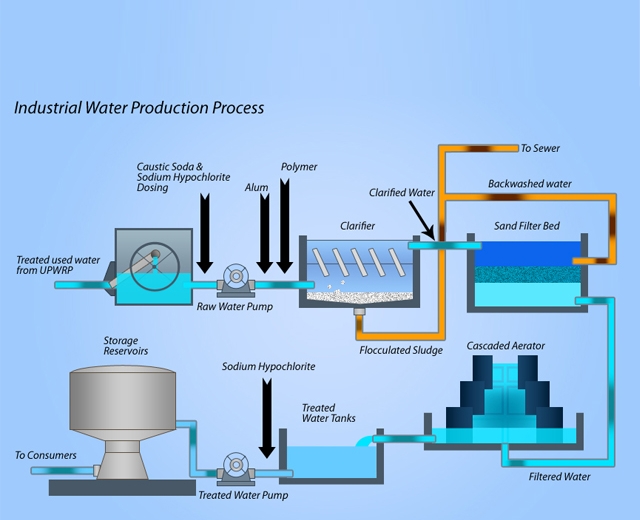Why a Water Filtration System Is Important for Clean, Safe Water
Access to clean, risk-free water is a basic human right and a cornerstone of public health and wellness. A water filtration system stands as a crucial option to mitigate these threats, making certain that neighborhoods and individuals can access secure drinking water.
Value of Tidy Water
Access to clean water is a fundamental necessity for human wellness and health. Infected water can lead to severe wellness problems, including gastrointestinal ailments, cholera, and dysentery, particularly in vulnerable populaces such as youngsters and the senior.
In addition, tidy water is essential for hygiene and health methods, which are vital in avoiding the spread of contagious diseases. Appropriate water supply supports proper sanitation facilities, advertising a much healthier environment. Furthermore, access to secure water affects socioeconomic aspects, as it makes it possible for communities to take part in commercial and agricultural activities, eventually contributing to economic growth.
In many regions, the absence of clean water worsens destitution and inequality, further impeding progression towards lasting development goals. For that reason, guaranteeing accessibility to clean water is not just a public health vital but additionally a cornerstone for social equity and financial growth. Efforts to boost water high quality and infrastructure have far-reaching advantages, promoting healthier areas and boosting lifestyle.

Typical Contaminants in Water
Ensuring the schedule of tidy water is weakened by various contaminants that can jeopardize its safety and security and quality. The presence of virus, such as infections, microorganisms, and bloodsuckers, presents substantial wellness threats, especially in areas doing not have ample cleanliness. These bacteria can cause waterborne conditions, resulting in extreme health problem or also death.
Chemical impurities also provide a vital concern. Heavy steels, including arsenic, lead, and mercury, usually enter water products through commercial discharges or rusty plumbing. These substances can build up in the body with time, leading to long-term health and wellness concerns such as neurological damages and developmental disorders.
Furthermore, agricultural runoff introduces pesticides and fertilizers right into water systems, which can interfere with ecological communities and adversely influence human health. Nitrates, typically discovered in plant foods, can cause severe conditions like methemoglobinemia, specifically in infants.
Advantages of Water Purification Equipments
Acknowledging the crucial demand for safe alcohol consumption water, water filtration systems provide a myriad of benefits that boost public health and wellness and ecological sustainability. Mainly, these systems effectively eliminate unsafe impurities, including microorganisms, viruses, heavy steels, and chemicals, ensuring that the water taken in is without pathogens and contaminants. This decrease in impurities substantially lowers the danger of waterborne illness, promoting overall community wellness.
In addition to health and wellness benefits, water purification systems contribute to ecological sustainability by reducing dependence on bottled water, which usually creates too much plastic waste. By utilizing a filtration system, families can decrease their carbon footprint and add to a much more lasting ecosystem. These systems can enhance the preference and smell of water, making it extra tasty for everyday consumption.

Various Types of Filtration Techniques

One usual method is reverse osmosis, which utilizes a semi-permeable membrane layer to separate water from dissolved solids and contaminants. This process effectively reduces impurities, including heavy metals and chemicals. An additional extensively used method is ultraviolet (UV) disinfection, which employs UV light to neutralize viruses and bacteria, providing them safe without the use of chemicals.
Triggered carbon filtration is an additional popular strategy, using carbon to adsorb natural compounds, chlorine, and undesirable odors, boosting preference and odor top quality. Distillation, a process that includes boiling water and condensing the heavy steam, successfully gets rid of minerals and impurities however may need even more find out here energy compared to various other methods.
Ion exchange is typically utilized to soften water by replacing calcium and magnesium ions with sodium or potassium ions. Each approach has its limitations and benefits, making it necessary to recognize their performances and efficiency in dealing with specific water top quality problems - Water Purification System. Ultimately, picking the proper purification method is crucial for making certain secure and clean alcohol consumption water
Choosing the Right System
Choosing an appropriate water filtration system requires cautious consideration of numerous aspects, consisting of the specific impurities present in the water supply, the quantity of water required, and the preferred filtration technique. It is critical to carry out a water top quality test to recognize pollutants such as bacteria, heavy steels, or chemical contaminants. This details will certainly lead you in selecting a system that successfully targets those specific contaminations.
Next, assess your house's everyday water usage to identify the system's capacity. Equipments are available in various sizes, from point-of-use filters for alcohol consumption water to whole-house units that detoxify all water entering your home.
Furthermore, take into consideration the purification technique that finest fits your needs. Reverse osmosis is very effective for removing a broad variety of impurities, while UV filtration is superb for eliminating microbes.
Final Thought
In conclusion, the application of water filtration systems is important for ensuring access Full Report to tidy and secure water. By recognizing the relevance of tidy water and the advantages of different filtration approaches, neighborhoods can make enlightened decisions to protect their health and wellness and advertise socioeconomic security.
Acknowledging the essential need for risk-free alcohol consumption water, water filtration systems use a myriad of benefits that enhance public health and environmental sustainability.In addition to health and wellness advantages, water purification systems add to ecological sustainability by reducing reliance look at these guys on bottled water, which frequently creates extreme plastic waste. Inevitably, the adoption of water filtration systems is an aggressive action towards guaranteeing tidy, risk-free water for future generations while protecting public wellness and the setting.
Selecting a proper water filtration system calls for mindful consideration of numerous variables, including the specific impurities present in the water supply, the quantity of water needed, and the preferred purification technique.In verdict, the implementation of water filtration systems is essential for guaranteeing access to safe and clean water.